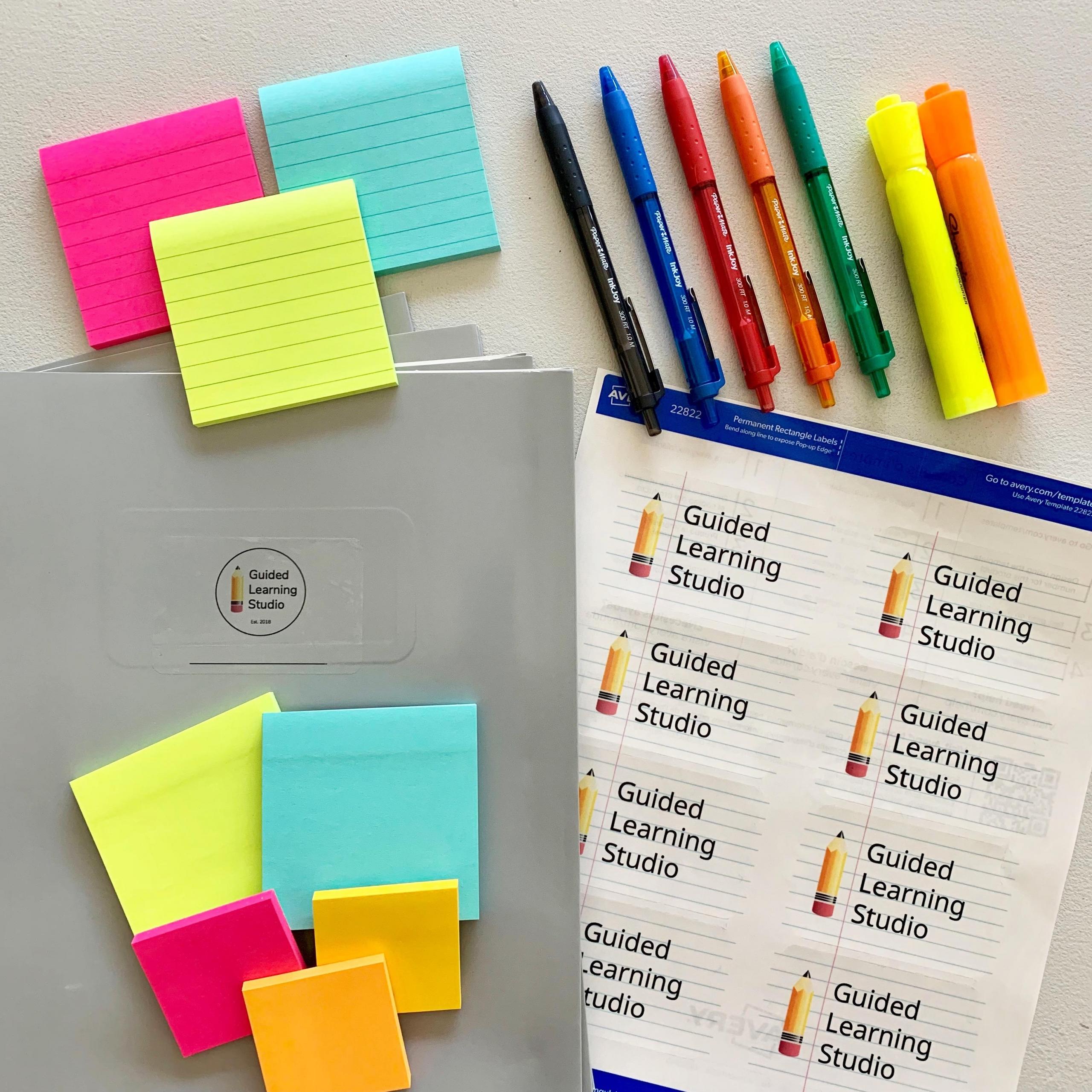If you aren't familiar with the Leaving Certificate or "Leaving Cert", it's simply the state examinations taken by Irish students in their last year of secondary school.
The State Examination Commission or Coimisiún na Scrúduithe Stáit is the part of the Department of Education in Ireland responsible for these exams.
A student's best six subjects for the Leaving Cert are used to calculate a student's CAO point and the average student gains 300 points. 52% of students get 300 points or higher.
Secondary school students who've already looked at university places may have noticed that most courses or programmes need over 300 points, especially in fields like law, engineering, business, or medicine.
The best way to improve your chances is by understanding the subjects that will get you there and since French is often chosen as one of those six subjects that are included in the calculation, it makes sense to learn more about it.
Here's our guide to the Leaving Cert French.

The Leaving Cert French Syllabus
While not the most interesting thing that you'll ever read, you can look at the Leaving Cert French syllabus. You can find this on the Curriculumonline.ie website.
Across 26 pages, the document outlines what teachers need to cover and what secondary students are expected to know in French for the Leaving Cert.
It's worthwhile reading it once, taking notes, and knowing what you'll be tested on. After all, when you sit down to revise for your Leaving Cert French, it's always good to check that what you're studying is something you need to know and that you're using the right resources for Leaving Cert French. We've read it and picked out a few noteworthy areas of it for this article, but we always recommend that students read it, too.

The overall goal of Leaving Cert French is to provide students with French communication skills for both the classroom and the real world. They'll achieve this through an understanding of French grammatical structures and vocabulary.
Since language and culture are inseparable, students will also improve their awareness of French culture and diversity through the study of the cultural, social, and political complexion of French-speaking countries.
Here are the main activities and themes covered in the Leaving Cert French.
Getting to Know People in French
In terms of language, students will learn general introductions in French and the conversational basics required for getting to know people. This can include asking for personal details about a person, talking about your family and home, introducing others, or even congratulating someone.
They'll cover the differences between formal and informal language (an important part of French-speaking culture), learn how to ask questions, and practise using the proper intonation to ask questions.
Making Plans in French
Leaving Cert French uses making plans to introduce students to French future tenses, adverbs and adverbials, and the expressions used to frame plans in the future.
They'll also learn how to accept or refuse suggestions for plans in the right way using conditionals.
Talking about the Weather in French
Nothing cancels a plan like the weather and Leaving Cert students will learn vocabulary relating to the weather, how to relay information from a weather forecast, and how to talk about things in different places and countries.
Travel and Transport in French-speaking Countries
Asking for directions, finding your way, reserving seats on different kinds of transport, and talking about itineraries are all essential when travelling to other countries.
In Leaving Cert French, students are taught how to do this through interrogative and imperative tenses, expressions for expressing preference, and using the 24-hour clock, the latter of which is commonly used in French-speaking countries.
Shopping in French
Numbers, names, and forms are covered in the context of buying and paying for goods and services in French. Leaving Cert French even covers the abbreviated forms used in classified ads.

These linguistic skills should allow students to use the media to find out where certain goods are sold, order goods over the phone, ask for discounts or refunds, and give opinions on the quality of goods and services.
Dealing with Emergencies in French
One of the most important things to do in a foreign language is deal with an emergency. Hopefully, you'll never need to use these language skills, but it's better to have them.
This area of Leaving Cert French covers linguistic skills used for asking for help, expressing urgency, differentiating between different kinds of urgencies, and giving an account of events and describing events in the past.
Naturally, this includes past tenses like the French passé composé, imperfect, and pluperfect tenses.
Agreeing and Disagreeing in French
In the syllabus, this is called "facilitating, encouraging or impeding a course of action" but it essentially means asking if you can do certain things using the subjunctive and negatives, offering advice, and making demands.
This also includes conditional tenses and structures equivalent to "can I" and "may I" in the English language.
Using French to Express Feelings and Attitudes
The written exam for the Leaving Cert regularly uses a lot of the structures and grammar used in this theme. Students should be able to express a range of emotions and exclamations.
This also includes indicative and subjunctive clauses.
Managing French Conversations
This is arguably one of the most important things to learn in any foreign language since losing control of a conversation is a quick way to end up stumped.
Leaving Cert students learn how formal and informal structures are used in French, how to start a conversation, how to end a conversation, and how to express whether or not you've understood something.
They'll also cover discussions, subordinate clauses, and how to contrast ideas.
The Leaving Cert French Assessment
Naturally, the Leaving Cert French exam is based on the syllabus as it exists to test that these themes and activities have been effectively taught to students.
Like with any foreign language, the main skills are assessed: listening, speaking, reading, and writing.

The exam is obviously for Leaving Cert students and takes into account the levels that may be taking it. Don't expect the exams to be full of native-level French; the vocabulary and structures used will be appropriate to what you've studied.
Students also have the choice between Higher Level and Ordinary Level. The points received will differ depending on the level taken. For example, a student who achieves 90% at Higher Level would get 100 points while 90% at Ordinary Level would equate to 56 points.
The Leaving Cert French exam and the French Junior Certificate exam both come in three parts: oral, written, and aural. The latter is colloquially known as the listening exam since oral and aural are often pronounced identically or very similarly.
The reading and writing parts are part of the written exam.
During the oral exam, students are also marked on pronunciation, vocabulary, communication, and structure. Structure covers grammar, syntax, and flow.
How to Prepare for the Leaving Cert French
With three very different exams testing four main language skills, there are different ways to prepare for each.

Preparing for the Leaving Cert French Oral Exam
Preparing for the French oral exam is essential.
In every speaking exam, there'll be an otherwise good student who ends up performing poorly because they didn't adequately prepare or nerves get to them and they start speaking another of the languages that they're learning.
With speaking any foreign language, practice makes perfect so regularly practise speaking French and simulating the experiences that you're going to be tested on in the oral exam.
Preparing for the Leaving Cert French Aural (Listening) Exam
Getting ready for the Leaving Cert French aural exam is a little tougher because you can't guarantee exactly what will be on the exam.
Fortunately, you can always do practice papers and mock exams for the listening with exercises that are very similar to what you'll be tested on.
Preparing for the Leaving Cert French Written (Reading and Writing) Exam
The Leaving Cert written exam accounts for 55% of your grade and there are so many different types of writing you could be asked to do.
You need to get in the habit of understanding what the questions and prompts mean. If your writing for Leaving Cert French is a letter or postcard, for example, it pays to be familiar with the structure.
You should also focus on what the questions and prompts are looking for. They're the clues to the grammatical structures and vocabulary that the examiners want to see. As always, revise, keep the syllabus in mind, and practise with mock exams.
If you need more help, look no further than the Superprof website and search for private French tutors specialising in the Leaving Cert!
Summarise with AI:
























